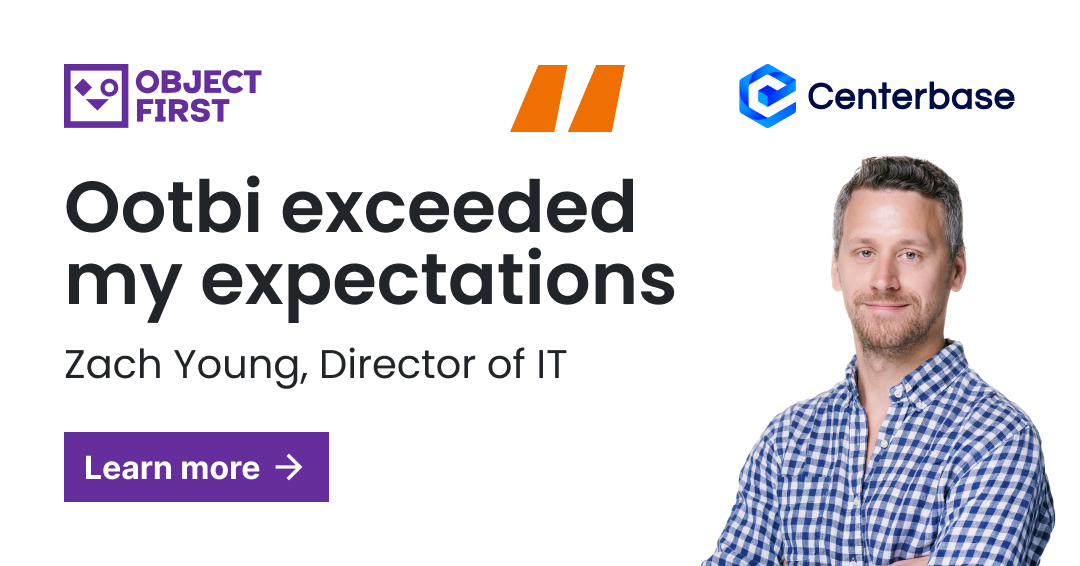Corporate Data Backup: Top Solutions to Prevent Data Loss
Imagine losing years of critical data with no way to recover it. This kind of disaster doesn’t just disturb operations; it can shut down an organization entirely. In the first half of 2024 alone¹, data breaches exposed 7 billion records, highlighting the immense risk businesses face.
The good news? You can bypass this nightmare scenario with a solid corporate data backup plan. Whether it’s hardware failure, ransomware, or human error, the right strategy ensures your data is always ready for recovery.
Explore how corporate data backup solutions shield your information from these looming threats.
Understanding Corporate Data Backup
Corporate data backup is the process of using hardware and software to create secure, reliable copies of your organization’s data for safekeeping. It’s an indispensable practice, thanks to which your information is always protected and accessible when needed.
Whether you store your data on physical servers, in the cloud, or hybrid systems, having a corporate data backup strategy is key to maintaining business continuity and ensuring data integrity across all departments.
The Importance of Corporate Backup Data
Corporate data backup devices safeguard your organization from the irreversible damage of data loss. This approach is paramount, considering that up to 94% of businesses facing a major data loss either shut down entirely or never fully recover.
Without a proper backup strategy, losing critical data can disrupt operations, resulting in costly downtime, financial setbacks, and long-term reputational damage.
Corporate data backup defends against common threats companies encounter, such as:
- Human Error: Accidental deletion, misplacement, or overwriting of critical files can happen to anyone. Even with the best-trained employees, mistakes are inevitable.
- Hardware Failures: Servers, hard drives, and other storage devices aren't immune to failure. Whether it's a sudden disk crash or gradual wear and tear, the risk of hardware malfunction can result in the permanent loss of essential business data, severely affecting business continuity.
- Cyberattacks and Ransomware: Ransomware can encrypt valuable data and demand a hefty price for its release. A robust backup solution ensures your data remains secure and recoverable even during a successful attack.
- Natural Disasters: Events like floods, fires, earthquakes, or power outages can strike any time, wreaking havoc on your physical infrastructure. In the absence of off-site or cloud-based backups, these disasters can wipe out critical data.
- Software Corruption: Software bugs, faulty updates, or application crashes can corrupt files and databases without warning. When key data becomes compromised or inaccessible, businesses can face prolonged downtime or lose access to integral records if backups aren't readily available.
- Compliance Failures: Many industries are subject to strict data protection regulations, and failing to store and back up sensitive information correctly can result in fines and legal consequences. Corporate data backup assures compliance with legal standards, helping avoid penalties caused by data breaches or loss.
Corporate Data Backup Solutions
With the average cost of a data breach soaring to $4.88 million in 2024², selecting the right backup strategy can make all the difference in protecting your organization.
Here are the most common enterprise backup solutions:
On-Premises Backup Solutions
On-premises backup solutions refer to storing data locally on physical devices like servers, external hard drives, or Network-Attached Storage (NAS). It’s a strong choice for businesses with significant data volumes, fast access requirements, or heightened security concerns about third-party services.
This solution works well for organizations that need immediate data retrieval or operate in areas with unreliable internet. Industries with strict compliance regulations, such as healthcare and finance, often favor on-premises object storage to maintain tight control over data access and storage.
Pros:
- Complete control over data and its storage environment
- Instant access to backups without relying on internet speed
- Tailored to meet specific security and compliance requirements
Cons:
- High initial investment in hardware and ongoing maintenance
- Susceptible to local disasters like fires or floods
- Requires dedicated IT expertise for management and upkeep
Cloud Backup Solutions
Cloud backup solutions store your data remotely on servers managed by third-party providers, eliminating the need to maintain physical storage hardware. Backups are done over the internet, making data accessible from almost anywhere.
These are perfect for businesses needing scalability and flexibility, allowing them to expand storage effortlessly as their data grows. Cloud backups are also suited to companies prioritizing offsite storage for ransomware recovery but looking to avoid the costs of maintaining local infrastructure.
Pros:
- Scales easily with growing data needs
- Accessible globally with an internet connection
- Offsite storage adds an extra layer of protection against local disasters
Cons:
- Subscription costs can accumulate over time
- Data backup and recovery times depend on internet speed
- Data privacy concerns may arise depending on the provider
Hybrid Backup Solutions
Hybrid backup solutions combine the advantages of both on-premises and cloud storage, providing a flexible, multi-layered approach. Companies can store a local copy for fast recovery and a cloud backup for added security.
This approach is perfect for businesses that need quick data access but also want offsite storage security. It’s particularly useful for handling sensitive information and for those who want to mitigate risks from local disasters or cyber threats.
Pros:
- Local backups ensure faster recovery times
- Cloud storage provides added security and disaster recovery options
- Offers flexibility and scalability for businesses with growing data needs
Cons:
- Managing both systems can be complex
- Costs may be higher due to a combination of hardware and cloud services
- A strong internet connection is necessary for efficient cloud backups
Disaster Recovery as a Service (DRaaS)
Disaster Recovery as a Service (DRaaS) is a cloud-based solution designed to protect businesses from major disruptions by replicating and hosting data on virtual servers. In the event of a disaster, DRaaS swiftly enables IT infrastructure recovery, minimizing downtime.
This service is ideal for corporations where downtime would lead to significant financial loss, such as e-commerce businesses, financial institutions, or data-centric operations. DRaaS provides a robust disaster recovery strategy without investing in physical infrastructure.
Pros:
- Rapid recovery from severe disruptions
- Avoids the need for expensive infrastructure investments
- Ensures high availability, reducing business downtime
Cons:
- High ongoing subscription costs
- Relies on third-party providers for disaster recovery
- Data recovery speed can be influenced by internet bandwidth
5 Steps to Implement an Effective Corporate Data Backup Plan
To make sure your backup plan is rock-solid and prepared for whatever comes your way, follow these five steps:
Step 1: Adopt the 3-2-1 Backup Strategy
The 3-2-1 backup rule is a tried-and-true method for ensuring data redundancy. It involves creating three copies of your data and storing them on two different media types, with one copy kept offsite.
This approach guarantees that even if one backup fails, whether from hardware failure, cyberattacks, or natural disasters, you'll have two others to rely on.
Step 2: Schedule Regular Immutable Backups
To protect against ransomware attacks or tampering, implement regular backups that are immutable. Once created, they cannot be altered or deleted. Immutable backups guarantee your data remains secure, untouchable, and ready for recovery at any time.
Plan backup frequency based on your data's sensitivity and importance, making sure the most critical data is backed up more frequently.
Step 3: Utilize Data Replication or Physical Copies
For added protection, replicate your data across multiple locations or create physical backups in offsite locations. Data replication continuously synchronizes data between different systems, providing you with an up-to-date copy.
Alternatively, physical backups stored securely on external drives or tapes provide extra defense against local disasters like fires or floods.
Step 4: Follow Zero Trust Data Resilience (ZTDR) Principles
Follow Zero Trust Data Resilience (ZTDR) principles to safeguard your backup data. ZTDR limits backup access, ensuring only authorized personnel can interact with the backup system and that all actions are logged and monitored.
By segmenting your backup infrastructure and minimizing access, you reduce the attack surface and lower the risk of malicious actors compromising critical data.
Step 5: Keep Backups Compliant with Industry Regulations
Ensure your backup strategy aligns with industry standards, such as CISA's "Secure by Design" framework³, which urges organizations to adopt resilient, compliant security practices from the start.
Adhering to these regulations not only keeps your organization compliant but also strengthens your data security posture, minimizing the risk of penalties or breaches due to non-compliance.
Corporate Data Backup Storage with Ootbi by Object First
For reliable corporate data backup storage, you need a solution that not only protects but also enhances your defense against modern threats like ransomware. And that's where Ootbi (Out-of-the-Box Immutability) by Object First comes into play.
Ransomware-proof Ootbi delivers secure, simple, and powerful backup storage for Veeam customers. Ootbi is built on the latest Zero Trust Data Resilience principles and delivers S3 native immutable object storage designed and optimized for unbeatable Veeam backup and recovery performance.
What's more, Object First recently signed CISA's Secure by Design Pledge.
Read the whitepaper to learn how Ootbi currently meets or is in development to complete the pledge's seven core criteria.
Download the whitepaper and learn why Ootbi is the Best Storage for Veeam.
FAQ
How Often Should a Company Back Up Its Critical Data?
A company should back up its data regularly, ideally daily or continuously, depending on its sensitivity and importance. The more critical the data, the more frequent the backups should be.
How Does Data Loss Happen?
Data loss can occur through various means, including hardware failure, accidental deletion, cyberattacks, or natural disasters. Human error and malware attacks are some of the most common causes.
What Is the Best Corporate Backup Strategy?
The best corporate backup strategy includes creating immutable backups that cannot be altered or deleted. This ensures your data is protected from cyber threats like ransomware and ensures reliable recovery.
How to Protect Corporate Data Backup from Ransomware?
Corporate data backups defend against ransomware by using immutable backups, which cannot be modified or encrypted by malicious actors. This guarantees that your backup data remains safe and intact. Learn more about ransomware-proof backups.


